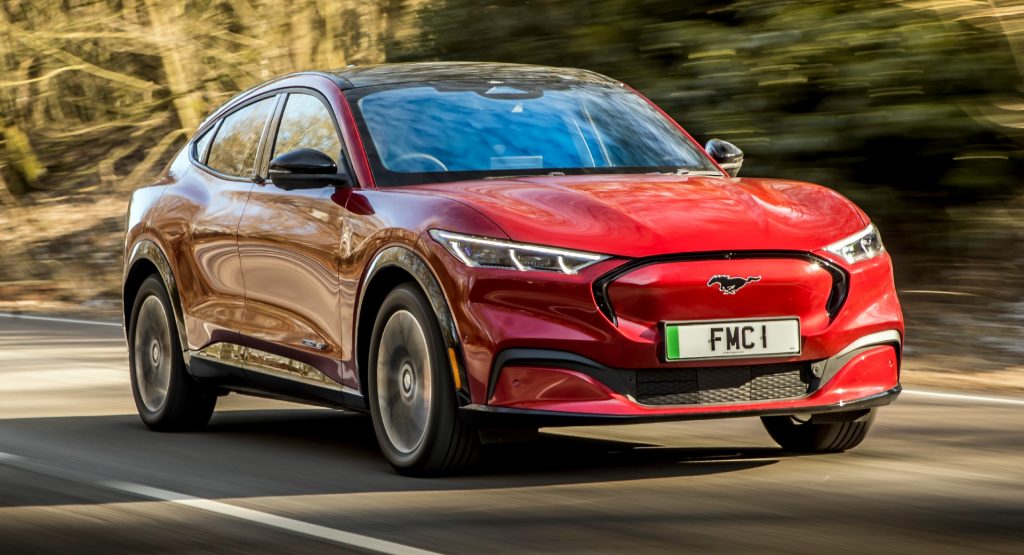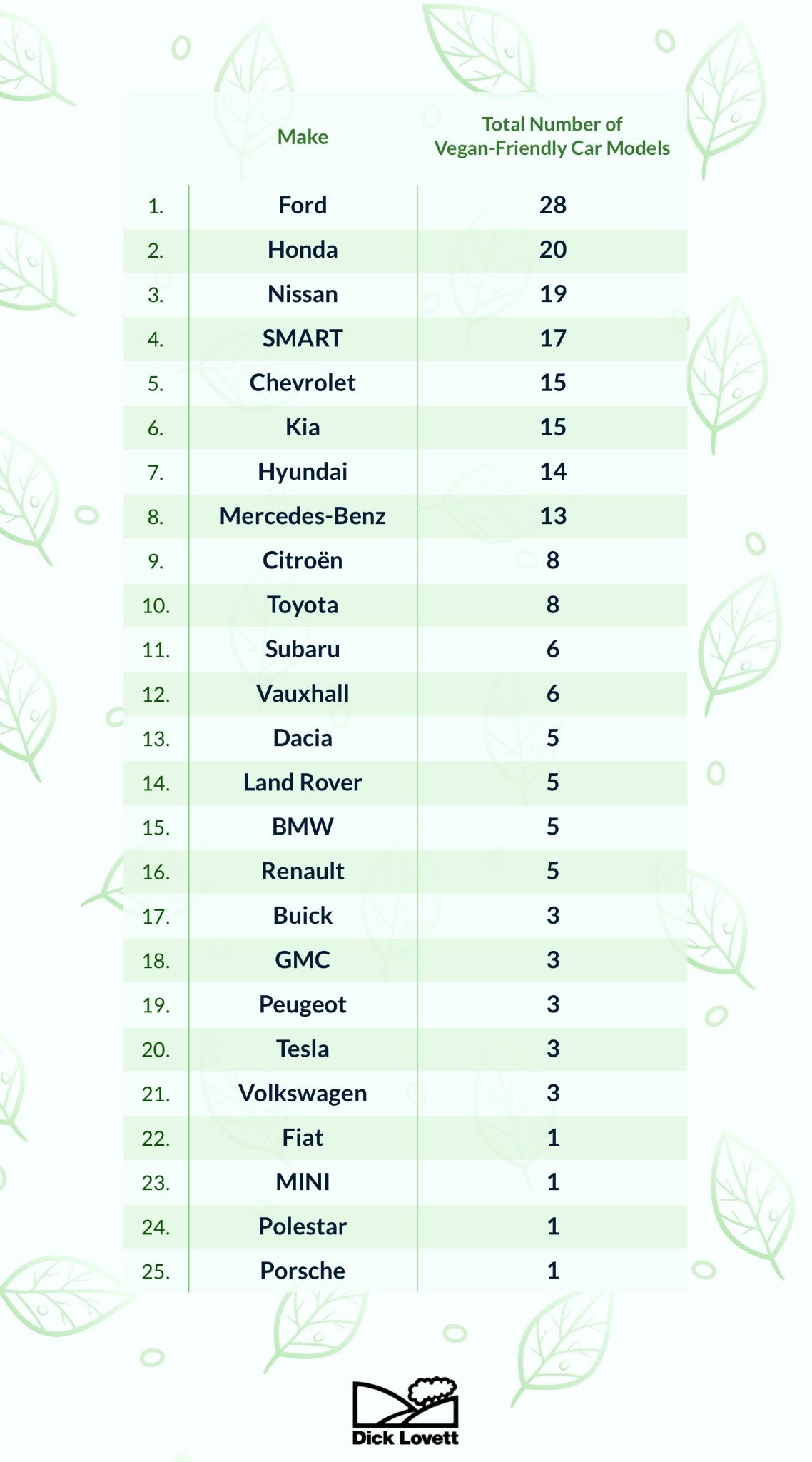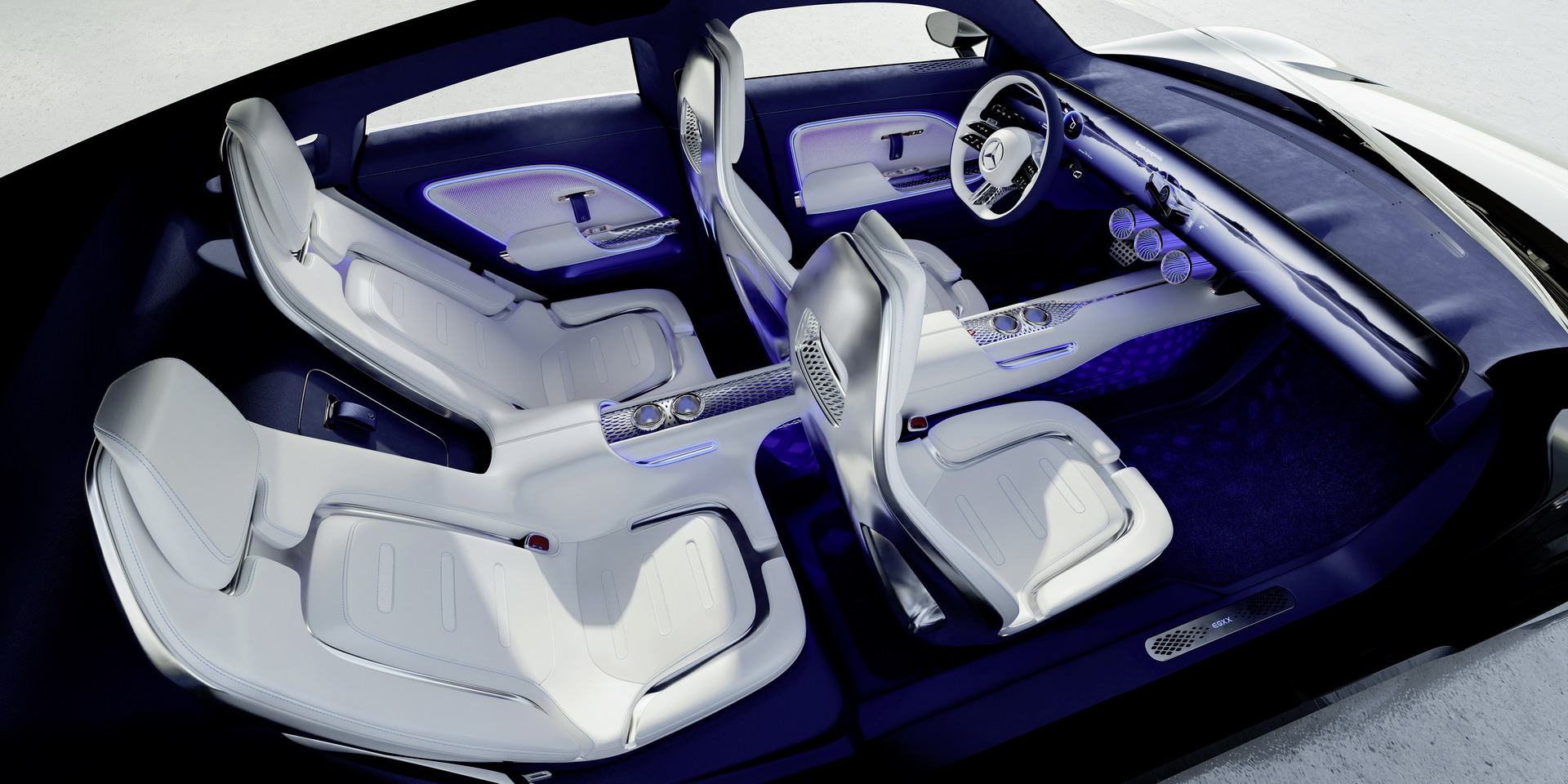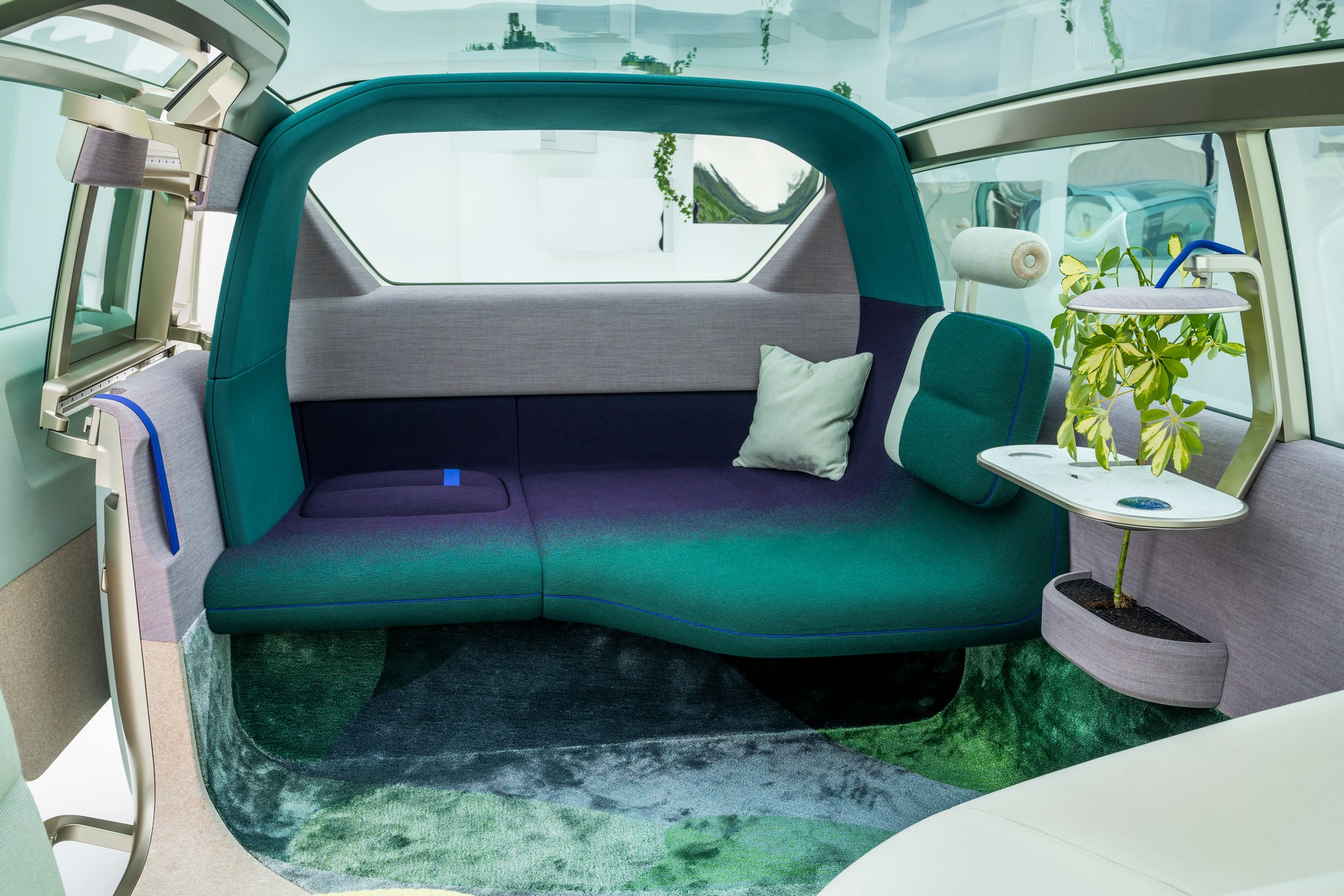Veganism is getting more popular in our times with many automakers responding to the new trend, not only to attract vegan customers but also to make their business case more sustainable in the long term. A new study by Dicklovett shows which companies are currently offering the most vegan-friendly models, using resources from PETA.
Let’s start off by addressing the elephant in the room: the “total number of vegan-friendly car models” listed on the chart is most likely referring to available trim levels. Now if this is the case then we’re not talking an apples to apples comparison between manufacturers since not all of them offer as many models and trim options while we also don’t know the markets that the study includes – for example, GMC is not available in the UK, Smart is not available in the US, while other automakers are available in both sides of the Atlantic with different lineups.
Read Also: Skoda Could Use Biological Raw Materials In Its Vehicles’ Interiors
In any case, Ford is listed as the most vegan-friendly company with 28 trim levels of its models, including the flagship Mustang Mach-E which comes standard with an all-vegan interior. Honda comes second with 20 trims, including the base spec CR-V and the brand new HR-V. Third place goes to Nissan with 19 trims, helped by the fact that the automaker doesn’t offer a standard leather steering wheel in entry-level variants of popular models like the Juke or the Qashqai in Europe.
Other noteworthy entries include Smart which besides having a two-model range (soon to be a single-model range after the demise of the EQ fourfour) is reportedly offering 17 vegan-friendly trims, as well as Kia and Hyundai with 14 and 15 trims respectively.
Mercedes-Benz reportedly offers 13 vegan trims, a number that sounds too small for an automaker with one of the most populous model ranges. Mercedes is known for offering sustainable options like the Artico man-made leather or the Dinamica man-made suede, so the number of vegan trims is somewhat low. The same goes for BMW which is listed with only five vegan-friendly trims while offering several options, especially for the BMW i range of electric models that are focused on sustainability.
MINI, which reportedly has only one leather-free trim – the base-spec MINI Hatchback Classic – will soon go completely leather-free for its entire range. The same goes for Volvo (not listed at all) that has pledged to go leather-free in electric models starting with the C40 Recharge. Finally, Fiat is listed with only one model while offering a vegan material called Seaqual for both the Panda and the 500.
While this study is indicative of the current state of the industry, we are sure that in a couple of years buyers will have plenty of vegan-friendly options in terms of upholstery and trim from all manufacturers, combined with sustainable use of recycled materials for the rest of the cabin.
Despite the progress that is being made, though, Vegan Society spokesperson Dominika Piasecka says there’s no such thing as a 100 percent vegan car: “The key with veganism is trying to do your best. It’s not possible to be 100% vegan in this imperfect world but we can avoid animal suffering as much as possible. Avoiding leather is a practical thing we can do while buying a car, while we can’t of course avoid tires or steel.”







